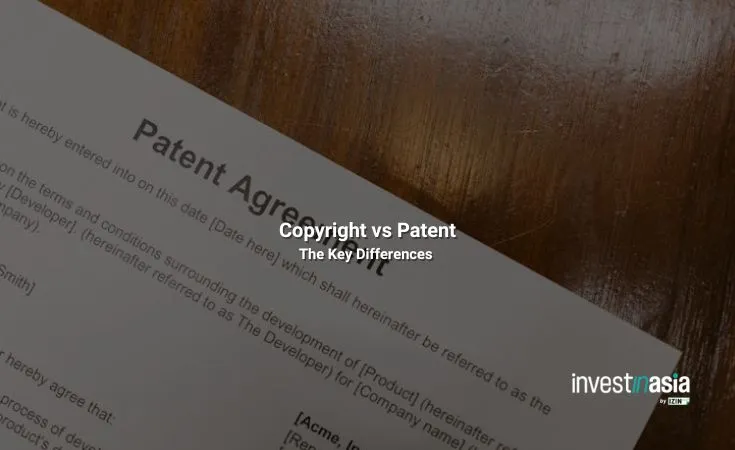When protecting intellectual property, creators and inventors often face a common dilemma: should they rely on copyright or pursue a patent? Both offer legal protections, but they serve entirely different purposes depending on the nature of the work. Understanding these differences is essential—not just for compliance, but for maximizing the value of your ideas, whether you’re an artist or a tech innovator.
Copyright: Protection for Creative Works


Copyright is a form of intellectual property protection granted automatically to creators of original works such as books, music, films, photographs, software, and visual art. It safeguards how an idea is expressed, not the underlying idea itself.
What Does Copyright Protect?
- Literary works (books, poems, articles)
- Musical compositions and lyrics
- Films and audiovisual content
- Software and databases
- Paintings, architecture, and photography
Copyright protection allows creators to:
- Reproduce and distribute their work
- Perform or display their work publicly
- Create derivative works
- License or sell their rights
Duration:
- In many jurisdictions, protection extends through the author’s lifetime and continues for 70 years after their death.
- If the work is created by a company or legal entity, Indonesia provides protection for 50 years after publication.
Registration:
- Not mandatory under the Berne Convention, which Indonesia follows
- But registering with DGIP (Indonesia) or the U.S. Copyright Office offers stronger legal proof in disputes
Example:
An author writing a novel instantly holds copyright once the manuscript is written—even without registration.
Also read: Trademark vs Copyright: Understanding Key Differences
Patent: Protection for Industrial Inventions


A patent grants inventors exclusive rights to their inventions—either a product or a process—that meets three essential criteria: novelty, inventiveness, and industrial applicability.
What Can Be Patented?
- New technological devices (smartphones, machinery)
- Industrial processes (manufacturing methods)
- Chemical compositions (pharmaceutical formulas)
- Design elements (under design patents)
Patent Types:
- Utility Patents: Cover new and useful inventions
- Design Patents: Protect ornamental design
- Plant Patents: For new plant varieties
- Simple Patents: Intended for gradual enhancements that do not involve inventive steps.
Also read: What Type of Patent is Used in Indonesia?
Duration:
- 20 years from the date of filing (standard patent)
- 10 years for simple patents in Indonesia
Registration Required:
Unlike copyright, patents require an official registration and examination process. This ensures the invention is original, useful, and not already protected elsewhere.
Example:
A pharmaceutical company that creates a new drug must file for a patent to prevent others from copying the formula.
Key Differences: Copyright vs Patent
| Feature | Copyright | Patent |
|---|---|---|
| What it protects | Artistic and literary expression | Covers innovations in technology and industrial applications. |
| How it’s granted | Automatically upon creation | Must be applied for and examined |
| Duration | Life of author + 70 years (Indonesia/U.S.) | 20 years (10 for simple patents in Indonesia) |
| Registration | Optional (but recommended) | Mandatory for protection |
| Use Case | Books, songs, software | Devices, machinery, pharmaceuticals |
| Legal Basis in Indonesia | Berne Convention, Indonesian Copyright Law | Indonesian Patent Law No. 13/2016 |
Why It Matters to Understand the Difference
Knowing whether your work should be copyrighted or patented helps:
- Secure your exclusive rights
- Prevent unauthorized use or replication
- Generate income from your intellectual property by licensing it or forming strategic partnerships.
- Avoid legal disputes
Artists, authors, and creators benefit most from copyright, while inventors, engineers, and entrepreneurs need patent protection to safeguard their innovations.
A Brief Overview of Copyright and Patent Laws in Indonesia
In Indonesia, copyright protection is granted automatically as per the Berne Convention, which means creators don’t have to register their work to be protected. However, registration with the Directorate General of Intellectual Property (DGIP) strengthens legal standing in case of disputes.
For patents, Indonesia recognizes two types:
- Standard Patents for full-fledged inventions
- Simple Patents for improvements without inventive steps
Patent registration is mandatory and grants protection for either 20 or 10 years, depending on the type.
Understanding the difference between copyright and patent rights is essential to protect your intellectual property effectively. While copyright covers creative expression, patents protect technical innovation. Whether you’re composing a symphony or engineering a new device, choosing the right legal protection ensures your work remains yours.
If you’re operating in Indonesia, take note of the local nuances—automatic copyright and formal patent registration—to stay legally protected and commercially secure.
You should also be aware of the local legal framework and ensure legal protection. Compliance not only prevents penalties but also strengthens your brand’s credibility.
For a simpler process, you can rely on InvestinAsia’s services for IP, Copyright, Patent, and Trademark registration in Indonesia. Our team of experts will ensure that the application is hassle-free for you.
Contact us now for FREE consultation and get a special offer!



